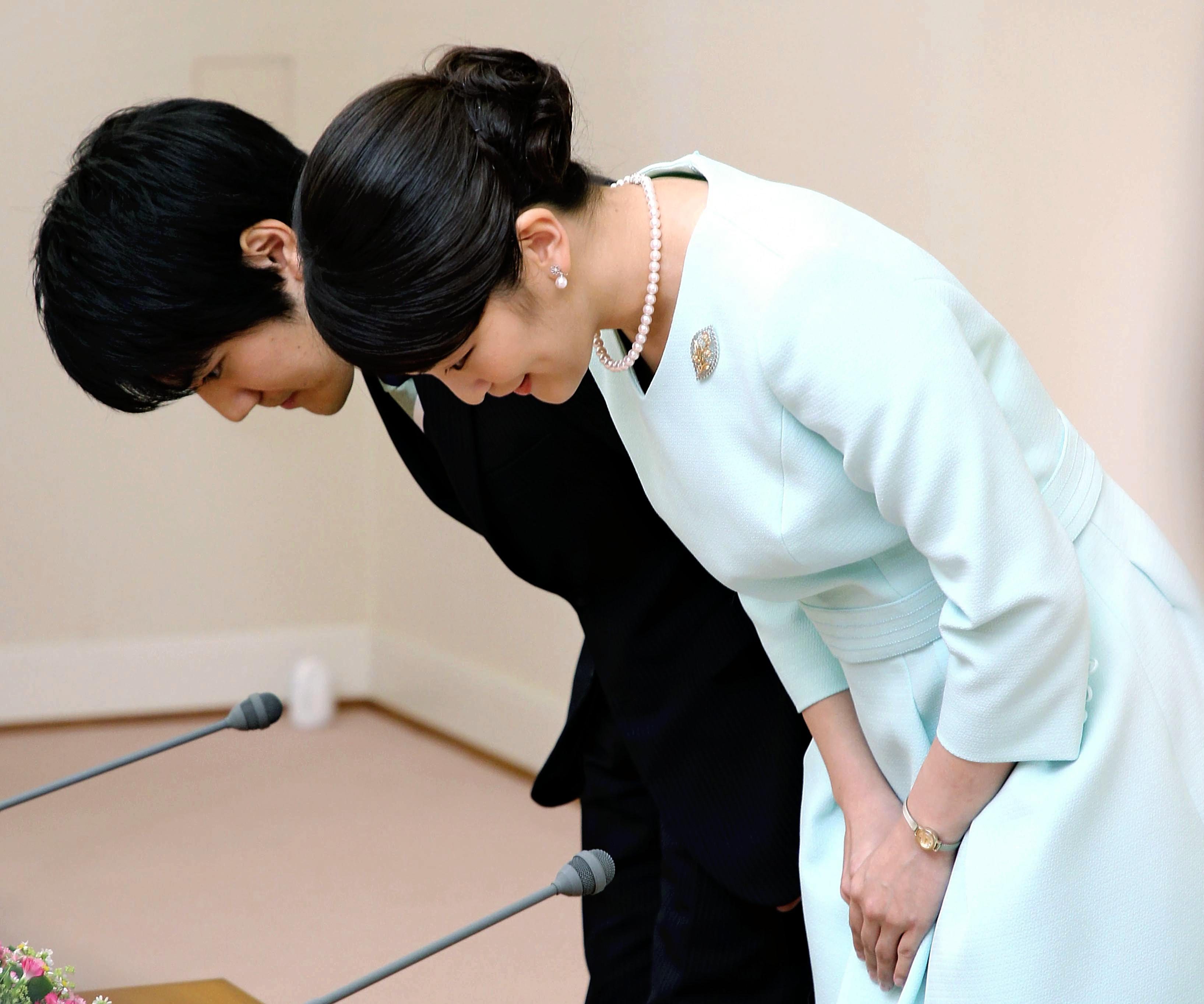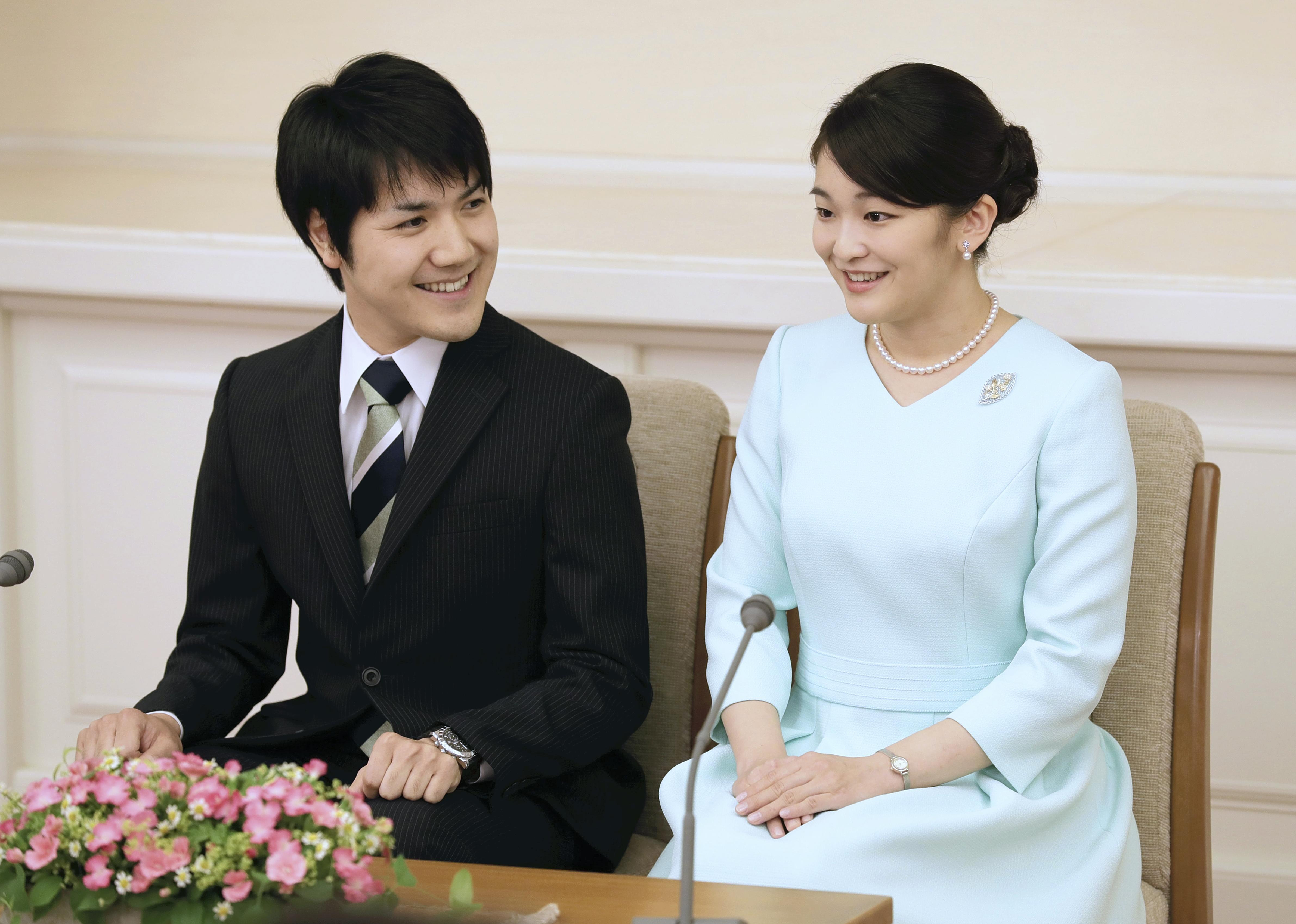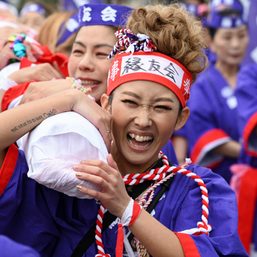SUMMARY
This is AI generated summarization, which may have errors. For context, always refer to the full article.

A poignant love story in Japan has been getting global attention, one that seems made for the movies: A princess gives up her life as a royal to marry a commoner.
On October 26, Princess Mako, the niece of the emperor, married Kei Komuro, her college sweetheart, in a no-frills ceremony at a Tokyo registry office. This capped four years of a tumultuous engagement that the media and a mostly disapproving public scrutinized in detail.
The two will live in New York where Komuro works in a law firm, away from the intensely prying eyes of the Japanese public. This may yet be the happy beginning of their life together.

The unusual wedding and love story – which reminded the world that love remains a pure and powerful emotion that defies conventions – has eclipsed an event that impacts Japan’s political life. On October 31, Japan, under the leadership of the new prime minister, Fumio Kishida, held its elections for the lower house, the country’s first under a pandemic. At stake were 465 seats. Under then Prime Minister Shinzo Abe, the ruling Liberal Democratic Party (LDP) and its coalition partner, New Komeito, held 305 seats, or about two-thirds of the chamber.
I am writing this before the elections but, as analysts have pointed out, the results are predictable. In a webinar on October 26 on Japan’s 2021 elections, Harukata Takenaka, professor at the National Graduate Institute for Policy Studies in Tokyo, said that the LDP and Komeito “are expected to maintain the majority.” Their numbers may be whittled down but still enough to sustain their dominant position.
The Council of Asian Liberals and Democrats (CALD) organized this online forum as part of its 2021 conferences which looked at the challenges to Asian political parties during the pandemic. (Disclosure: I served as moderator for the webinar.)
Japan’s power
Japan’s elections, moreover, have broader international and regional implications. As Senator Francis “Kiko” Pangilinan, CALD chairperson, said in his remarks (read by Congressman Francis Gerald Abaya, CALD secretary-general):
“Apart from supporting investment in manufacturing, trade and infrastructure development across the Asia-Pacific region, Japan is also part of the Quad, or Quadrilateral Security Dialogue, together with the United States, Australia and India…Japan’s participation in the Quad is crucial to bolster confidence of Asian liberals and democrats that democracies can withstand and counter the rise and influence of non-democratic countries.”
Richard Heydarian, an associate professor at the Polytechnic University of the Philippines, described Japan as a “super middle power:” It has one of the world’s most powerful navies and is the third largest economy in the world.
In foreign relations, the new prime minister, who served as foreign minister during part of Prime Minister Shinzo Abe’s term, is seen to continue strengthening ties with the United States and other partners at a time when China is increasingly becoming assertive in the Indo-Pacific region.
In the case of the Philippines, Japan has been the top source of aid for many years. In the first half of 2020, Japan poured in $10 billion, accounting for almost 40% of the official development assistance received by the Philippines.
Covid-19 crisis
In its briefing paper, CALD pointed out that the LDP has dominated Japan’s politics since its founding in 1955 except for brief intervals where the opposition, the Democratic Party of Japan (DPJ), became the ruling party. After losing its grip on power, the DPJ disintegrated and morphed into the Constitutional Democratic Party (CDP).
Amid this longevity of one-party politics, it appears that apathy has seeped in. Majority or 62% of Japanese believe that “elections do not change things,” as shown in a Pew Research Center survey in 2018. Kishida recognizes this. He has thus warned that the growing gulf between politicians and the public is a clear sign of a “crisis of democracy.”
One of the key issues in the elections was the weak response to the COVID-19 crisis, pointed out Takenaka, who specializes in Japan politics. This was a major reason the former prime minister, Yoshihide Suga, lasted just a year. His support dwindled as he was seen to have handled the Delta-driven wave of the coronavirus poorly.
“He [Suga]” couldn’t run with the ball,” said Saul Takahashi, professor at the Osaka Jogakuin University, who was one of the webinar’s speakers. “He didn’t handle the coronavirus crisis well.
The COVID situation has improved, though, in the weeks leading to the election. Cases in Japan have plummeted, its lowest in 11 months, thanks to a belated but rapid vaccination campaign, among other factors.
Kishida, 64, is seen as a “steady hand” who reaches out to people on the ground – so he may be able to improve the pandemic response. But not only will Kishida deal with the pandemic. He will also have to shore up a battered economy.
Add a comment
How does this make you feel?

![[Hindi ito Marites] Japan: From enemy to bestie](https://www.rappler.com/tachyon/2024/07/Hindi-ito-Marites-TC-ls-7.jpg?resize=257%2C257&crop=415px%2C0px%2C1080px%2C1080px)


![[Rappler’s Best] America](https://www.rappler.com/tachyon/2024/07/rapplers-best-america.jpg?resize=257%2C257&crop=458px%2C0px%2C1080px%2C1080px)





There are no comments yet. Add your comment to start the conversation.